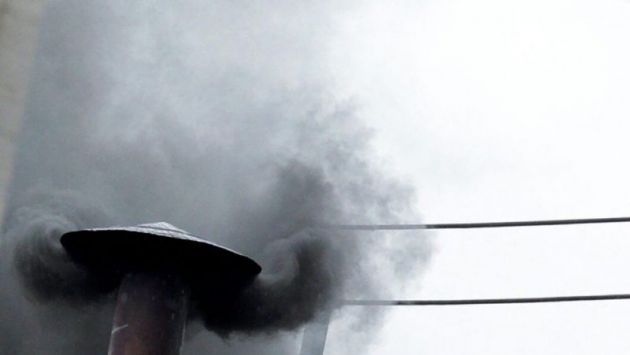Black smoke from Sistine Chapel on first day of Papal Conclave means no new pope yet

There was black smoke emitted from the Vatcian's Sistine Chapel on the first day of the Papal Conclave on May 7 to elect a sucessor to Pope Francis, meaning no new pontiff was elected.
The 133 cardinals in the papal conclave held their first day of meetings behind heavy wooden doors and sworn to secrecy, closed to the world in the Vatican's Sistine Chapel, to elect a new pontiff to succeed Pope Francis.
A new candiate for the papacy needs to get two thirds, or 89 of the votes to be elected.
Around 45,000 people had gathered in St Peter's Square to await the announcement, which had been expected some time after 7 p.m. (local time) In the end, they had to wait until 9, Vatican News reported.
The new pope chosen at the conclave that started mid-afternoon on May 7 will be the 267th successor of St. Peter as the leader of the Catholic Church.
The overwhelming majority of pontiffs have been Italian but the last three popes all came from non-Italian countries.
Of the 266 popes to lead the Catholic Church , 217, or 81 percent of them were Italian.
Italy's dominance in the papacy reflects the Vatican's location in Rome, Italy, and the historic influence of the Italian clergy in the Church, Fox News reported.
The ritual around the election of a new pope dates back to medieval times and the cardinal electors walked slowly into the chapel before taking an oath of perpetual secrecy.
In 2013, Pope Francis, from Argentina, was elected, the first Latin American pontiff after five ballots held over two days.
In 2005, German-born Pope Benedict XVI was elected after four ballots. In 1978, Pope John Paul II, a Pole, was elected over two days after eight ballots.
Then, between the death of Dutch Pope Adrian VI in 1523 and the election of John Paul II in 1978, Italians held the papacy for 455 years.
Saint Peter, one of Jesus' 12 apostles, is considered the first pope, originating from Bethsaida in Galilee, which is in present-day Israel.
A funeral was held for Francis on April 26 in St. Peter's Square, and he was later buried in the Basilica of Saint Mary Major.
Following Francis' funeral and burial, the Catholic Church entered a nine-day period of mourning called "Novemdiales," or Latin for "nine days."
Phones, electronics, and even notes are forbidden in the chapel as the cardinals decide.
Among favoured candidates to be the Pope are: 70-year-old Italian Cardinal Pietro Parlolin, Luis Antonio Gokim Tagle a 67-year-old Filipno cardinal, 71-year-old German Cardinal Reinhard Marx, and 76-year-old Ghanian Cardinal Peter Kodwo Appiah Turkson.